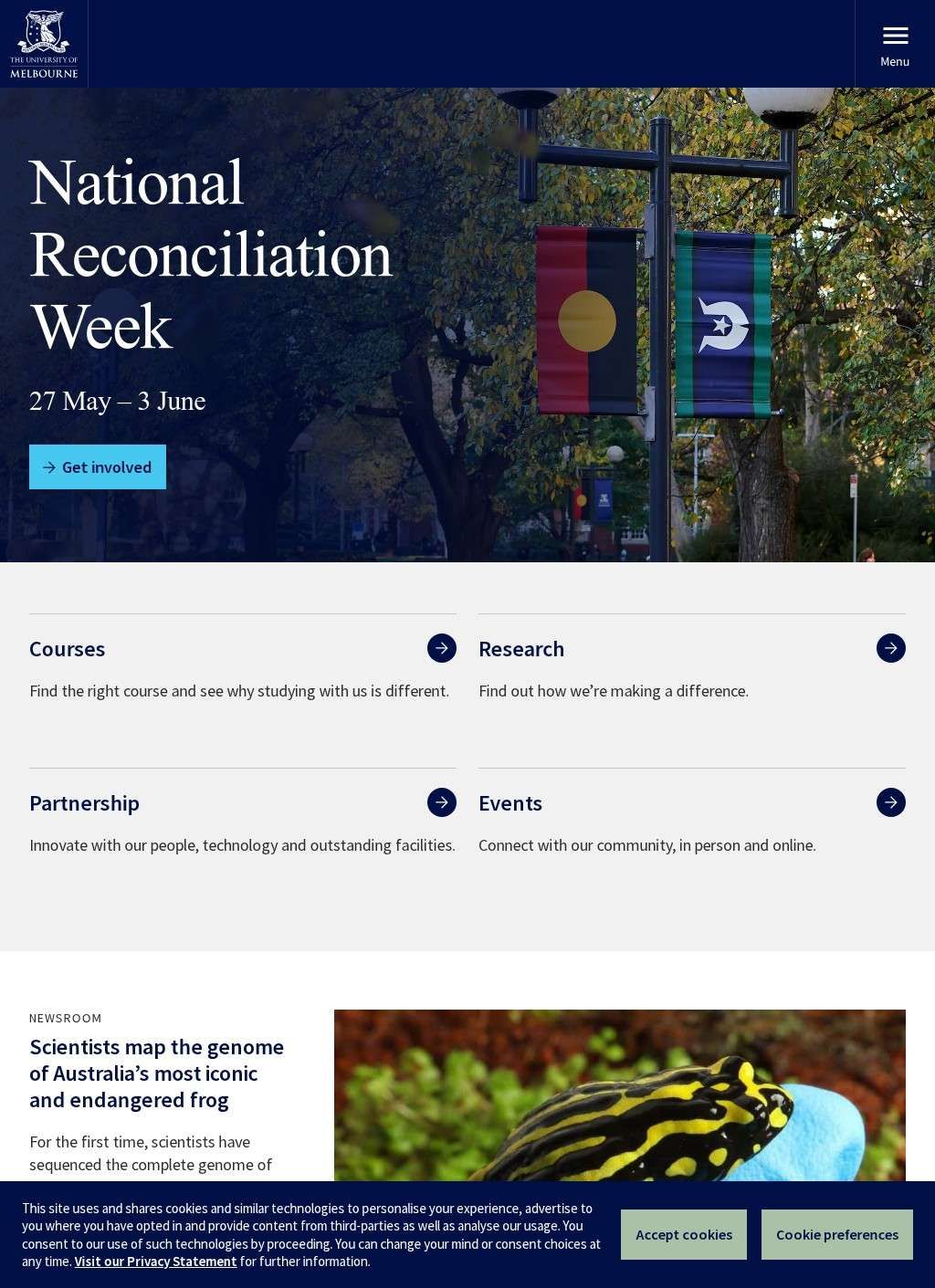The University of Melbourne stands as Australia's premier higher education institution, consistently ranked as the nation's number one university and holding a position among the world's top 50 universities across multiple international ranking systems. Established in 1853 as Victoria's first university, Melbourne has evolved into a comprehensive research-intensive institution that combines academic excellence with practical impact, serving over 50,000 students including significant international representation from more than 150 countries. This diversity creates a genuinely global educational environment while maintaining deep connections to Australian society and the broader Asia-Pacific region.
The university's campus network reflects both its historical significance and contemporary ambitions, with the historic Parkville campus serving as the primary hub while specialized facilities extend across Victoria and into innovative precincts that blur traditional boundaries between academia and industry. The iconic Parkville campus, located minutes from Melbourne's city center, combines heritage architecture with state-of-the-art research facilities, creating an environment where tradition and innovation coexist. Recent developments include Melbourne Connect, a purpose-built innovation precinct that brings together researchers, entrepreneurs, and industry partners in collaborative spaces designed to accelerate knowledge transfer and commercialization.
Research excellence defines the University of Melbourne's international reputation, with particular strength in areas including medical research, engineering, business, law, and education. The university's research institutes and centers address critical global challenges through interdisciplinary collaboration that leverages Melbourne's position within thriving innovation ecosystems. The Bio21 Institute focuses on biotechnology and biomedicine, while the Melbourne Energy Institute addresses sustainable energy challenges that extend far beyond Australia's borders. These research strengths translate directly into educational opportunities for students at all levels.
Academic programs reflect the university's commitment to broad-based education through the Melbourne Model, which provides students with comprehensive foundational knowledge before specialization in graduate programs. This approach produces graduates with both deep expertise and broad intellectual capabilities, contributing to strong employment outcomes and career adaptability. Professional programs in medicine, law, engineering, and business maintain international accreditation and attract students seeking globally recognized qualifications.
Student life at Melbourne balances academic rigor with comprehensive support services and extensive co-curricular opportunities. The university's residential colleges maintain traditions dating back to the 19th century while providing contemporary amenities and support systems. Over 200 student clubs and societies create opportunities for leadership development, community engagement, and personal growth that extend well beyond formal academic programs. The campus's location within Melbourne's cultural and business districts provides easy access to internships, cultural events, and professional networking opportunities.
Industry partnerships demonstrate the university's commitment to practical application of research and education, with collaborations spanning traditional sectors like mining and agriculture to emerging areas including artificial intelligence, renewable energy, and biotechnology. The Melbourne Accelerator Program supports student and alumni entrepreneurs, while industry placement programs provide practical experience that enhances graduate employability. These partnerships often lead to ongoing employment relationships and research collaborations that benefit both students and industry partners.
International connections position Melbourne as a global university with particular strength in the Asia-Pacific region, reflecting Australia's geographic position and economic relationships. Student exchange programs, joint research initiatives, and international partnerships provide opportunities for global engagement while bringing international perspectives to Melbourne's campus communities. The university's reputation attracts high-caliber international faculty and students, creating intellectual diversity that enriches the educational experience for all participants.
Innovation and entrepreneurship initiatives reflect the university's commitment to translating research discoveries into practical applications that benefit society. The Melbourne Accelerator Program, technology transfer offices, and startup incubators provide pathways for commercializing research outcomes while teaching students about innovation processes. These programs contribute to Melbourne's reputation as Australia's startup capital while providing practical learning opportunities for students across multiple disciplines.
Community engagement demonstrates the university's understanding of its role as a civic institution with responsibilities extending beyond traditional higher education functions. Public lectures, cultural events, community research partnerships, and pro bono professional services create ongoing connections between university expertise and community needs. The Ian Potter Museum of Art and other cultural facilities contribute to Melbourne's cultural life while providing practical learning opportunities for students in various fields.
Support services recognize the diverse backgrounds and needs of Melbourne's student population, with particular attention to international students, indigenous students, and those from backgrounds underrepresented in higher education. Academic support programs, counseling services, financial assistance, and accommodation services help students succeed despite potential challenges related to cultural adjustment, financial constraints, or academic preparation. The university's commitment to equity and inclusion extends throughout its operations and decision-making processes.
Graduate outcomes reflect the university's success in preparing students for leadership roles across multiple sectors, with alumni networks extending throughout Australia and internationally. Melbourne graduates are represented in senior positions across government, business, academia, and civil society, creating professional networks that provide ongoing career support and collaboration opportunities. The university's reputation for producing thoughtful, capable leaders contributes to its continued attractiveness to high-achieving students and faculty.
Future developments include major campus expansions and infrastructure projects designed to strengthen the university's position as a global leader in education and research. The new engineering campus at Fishermans Bend will create additional opportunities for industry collaboration, while ongoing investments in research infrastructure ensure that Melbourne remains at the forefront of scientific discovery and technological innovation that addresses global challenges.
